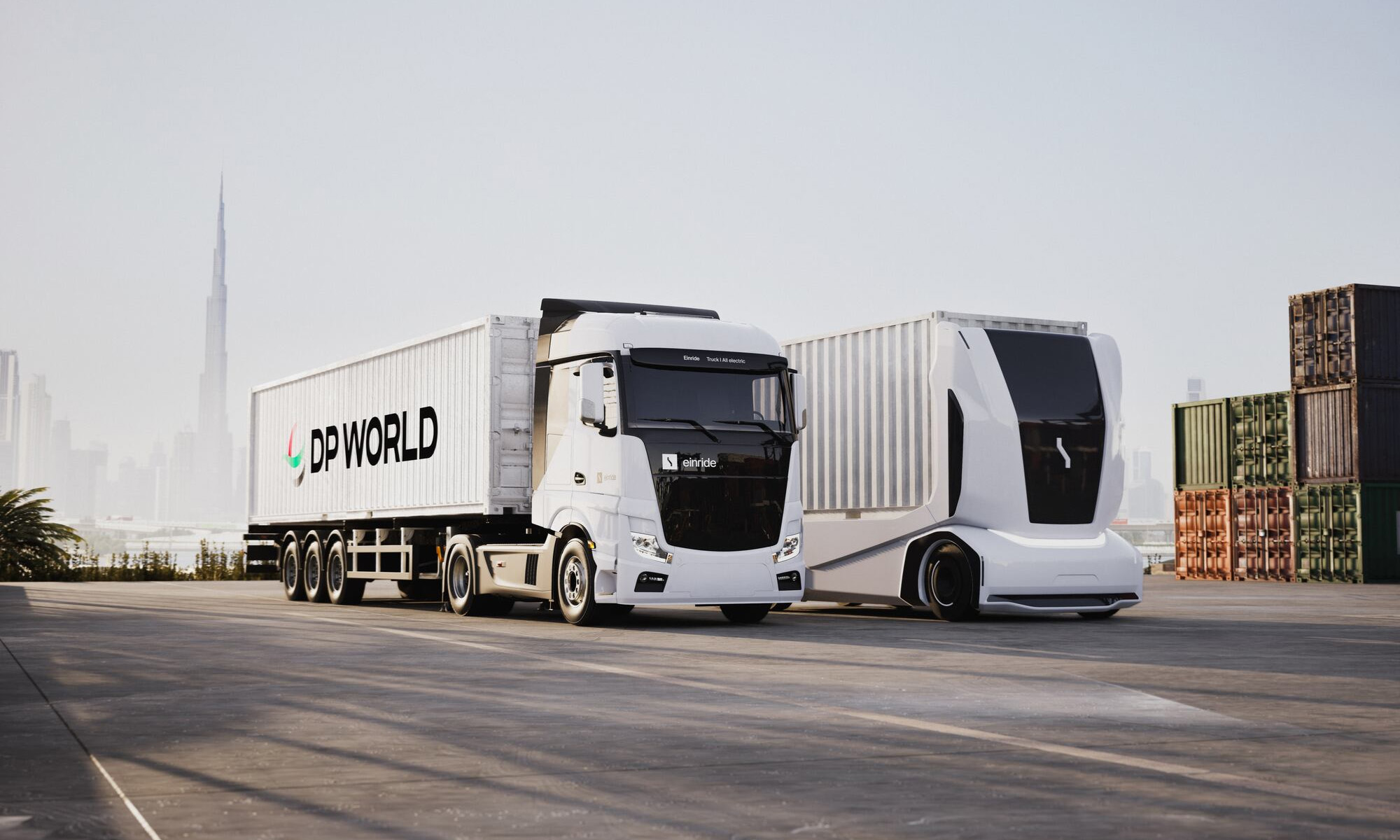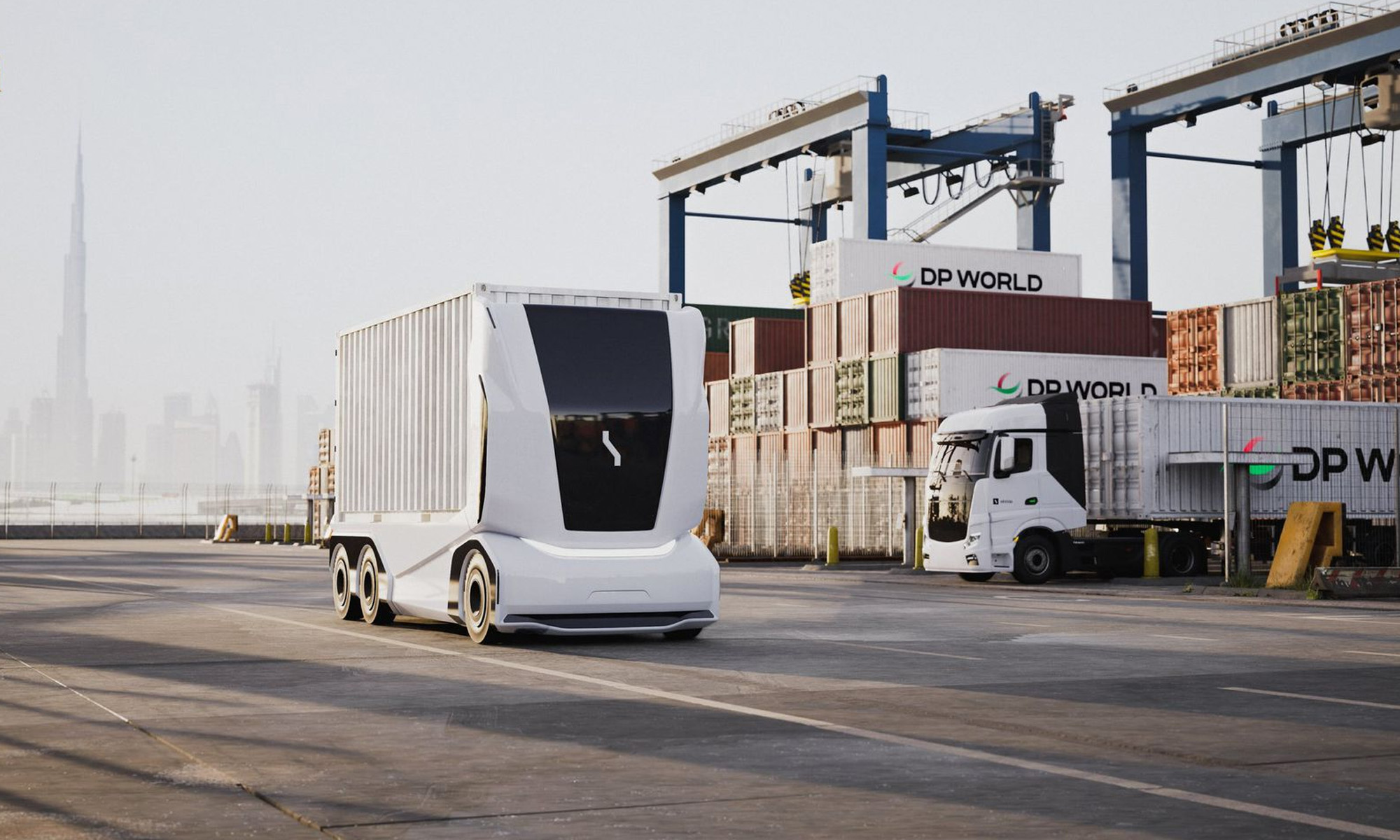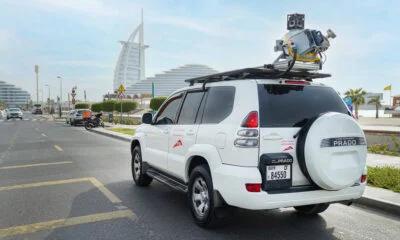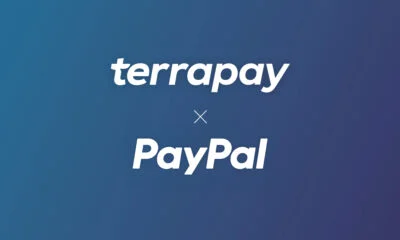News
Plans Underway For Massive Middle East Autonomous Freight Network
DP World and Einride will develop the largest electric, autonomous freight mobility operation in the region at Jebel Ali Port.

Dubai-based logistics company DP World has joined forces with Einride, a leader in freight mobility, to electrify container movements at Jebel Ali Port. The initiative will enhance efficiency and eco-friendliness at the world’s 10th busiest sea logistics hub. The groundbreaking plans include the largest deployment of electric, autonomous freight mobility across the Middle East, revolutionizing regional freight transportation.
The collaboration will begin in late 2024 and aims to ramp up swiftly to accommodate around 1,600 container movements daily. A fleet of 100 interconnected electric trucks will facilitate the expansion, overseen by Einride Saga, the company’s digital platform engineered to optimize electric and autonomous freight operations. A pilot for the autonomous vehicles is scheduled for rollout in 2025.

At full operational capacity, the venture will reduce carbon dioxide emissions annually by up to 14,600 tonnes and nitrogen oxides by 158 tonnes.
“DP World is committed to making trade smarter, faster, and more sustainable, and our new partnership with Einride aligns perfectly with our vision,” explained Abdulla Bin Damithan, CEO and Managing Director of DP World GCC. “We have already made significant progress in electrifying and automating our terminals at Jebel Ali Port, and by leveraging Einride’s cutting-edge technology, we can take that to the next level,” he added.
Also Read: Joby To Establish All-Electric Air Taxi Ecosystem Across The UAE
Robert Falck, CEO and Founder of Einride, added: “Our collaboration underscores a shared dedication to sustainability and innovation, merging Einride’s expertise in electrification and autonomous technology with DP World’s global logistics leadership […] This collaboration showcases the effectiveness of combining visionary ideals with decisive action, paving the way for a more resilient future”.
The partnership represents a cornerstone of Einride’s larger strategy with the UAE Government, helping to accelerate the transition to sustainable shipping practices. Einride’s ecosystem, featuring electric and autonomous vehicles, charging infrastructure, and cutting-edge technology, will be deployed extensively across the Falcon Rise grid, heralding a greener, more efficient freight-shipping future.
News
Google Releases Veo 2 AI Video Tool To MENA Users
The state-of-the-art video generation model is now available in Gemini, offering realistic AI-generated videos with better physics, motion, and detail.

Starting today, users of Gemini Advanced in the MENA region — and globally — can tap into Veo 2, Google’s next-generation video model.
Originally unveiled in 2024, Veo 2 has now been fully integrated into Gemini, supporting multiple languages including Arabic and English. The rollout now brings Google’s most advanced video AI directly into the hands of everyday users.
Veo 2 builds on the foundations of its predecessor with a more sophisticated understanding of the physical world. It’s designed to produce high-fidelity video content with cinematic detail, realistic motion, and greater visual consistency across a wide range of subjects and styles. Whether recreating natural landscapes, human interactions, or stylized environments, the model is capable of interpreting and translating written prompts into eight-second 720p videos that feel almost handcrafted.
Users can generate content directly through the Gemini platform — either via the web or mobile apps. The experience is pretty straightforward: users enter a text-based prompt, and Veo 2 returns a video in 16:9 landscape format, delivered as an MP4 file. These aren’t just generic clips — they can reflect creative, abstract, or highly specific scenarios, making the tool especially useful for content creators, marketers, or anyone experimenting with visual storytelling.
Also Read: Getting Started With Google Gemini: A Beginner’s Guide
To ensure transparency, each video is embedded with SynthID — a digital watermark developed by Google’s DeepMind. The watermark is invisible to the human eye but persists across editing, compression, and sharing. It identifies the video as AI-generated, addressing concerns around misinformation and media authenticity.
While Veo 2 is still in its early phases of public rollout, the technology is part of a broader push by Google to democratize advanced AI tools. With text-to-image, code generation, and now video creation integrated into Gemini, Google is positioning the platform as a full-spectrum creative assistant.
Access to Veo 2 starts today and will continue expanding in the coming weeks. Interested users can try it out at gemini.google.com or through the Gemini app on Android and iOS.























